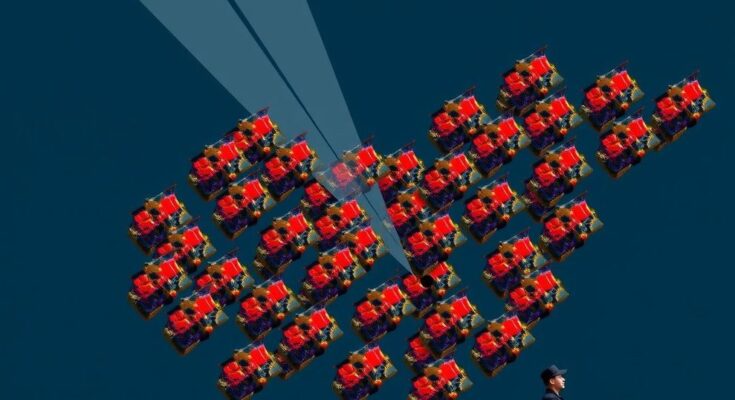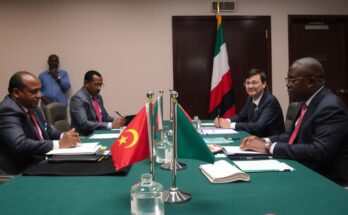The article examines the change in perception of North Korea among the Chinese, moving from disdain to admiration due to its troop deployment to Russia in the Ukraine war. It reflects on the historical views of North Korea as problematic and the recent transformation in sentiment, showcasing the complexity of geopolitical relationships in the region.
In recent weeks, the perception of North Korea among the Chinese populace has undergone a remarkable transformation, shifting from being viewed as a “neighborhood hooligan” to one of admiration. This change can be attributed to North Korea’s decision to send troops to support Russia in its ongoing conflict in Ukraine. Such actions have sparked intrigue and pride within China, where sentiment towards North Korea has historically been tempered by skepticism and criticism. During an extensive 18-year tenure in China, predominantly as a correspondent in Beijing, I frequently encountered various opinions regarding North Korea. Many Chinese individuals expressed harsh views regarding their neighbor, often highlighting the erratic behavior of the North Korean regime. While openly accepting substantial aid from China, North Korea has simultaneously posed a significant threat to the regional stability through nuclear proliferation and missile tests. “What a shameless neighborhood hooligan,” a Chinese bureaucrat once remarked, encapsulating the prevalent attitude. Further compounding this negative image was North Korea’s dire economic situation, wherein the regime reportedly prioritized its own enrichment over the well-being of its citizens, leading to widespread poverty and suffering. However, the recent military engagement supporting Russia has begun to reshape this narrative, as some citizens begin to recognize North Korea’s assertiveness as a stance of allegiance against perceived Western aggression. Consequently, this shift indicates a nuanced evolution in public sentiment that aligns with geopolitical developments, highlighting the complexities of regional relationships within East Asia.
The article discusses the shifting perceptions of North Korea within China following the former’s decision to deploy troops to support Russia in the Ukraine conflict. Historically viewed as a troublesome neighbor, this recent military involvement has altered public sentiment, transforming derision into admiration. This transformation illustrates the intricacies of geopolitical alliances and national identity, as external conflicts influence domestic views and relationships between neighboring nations.
In conclusion, North Korea’s troop deployment to support Russia in the Ukraine war has catalyzed a significant shift in the Chinese public’s attitude towards its neighbor. While previously seen as a detrimental influence and source of embarrassment, North Korea’s actions are now embraced by some as a display of nationalism and solidarity. This illustrates the dynamic nature of international relations, the impact of military alliances, and the potential for public sentiment to evolve based on geopolitical developments.
Original Source: www.scmp.com




